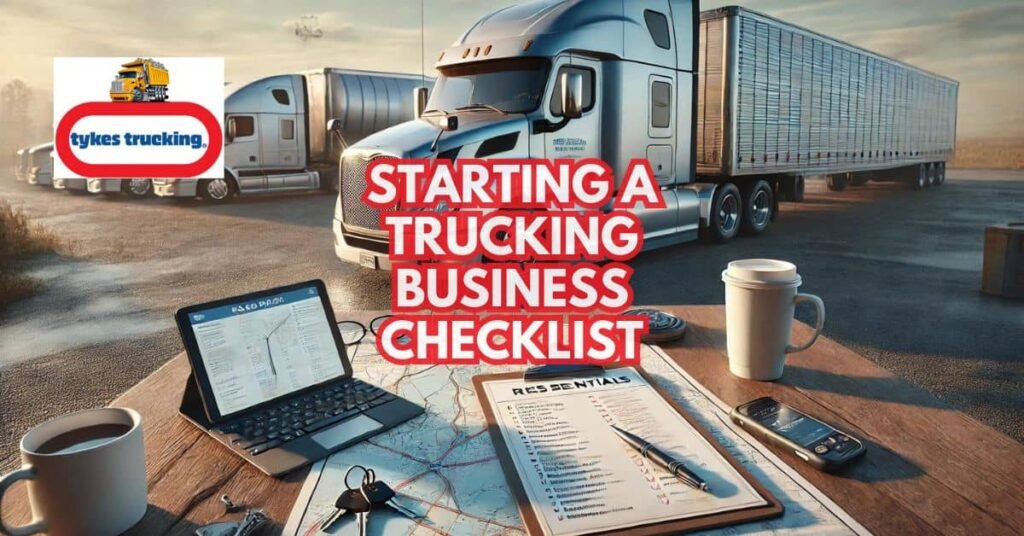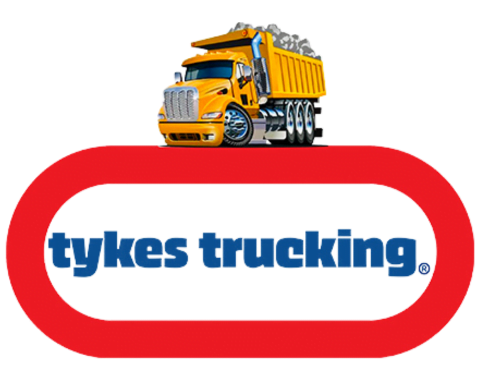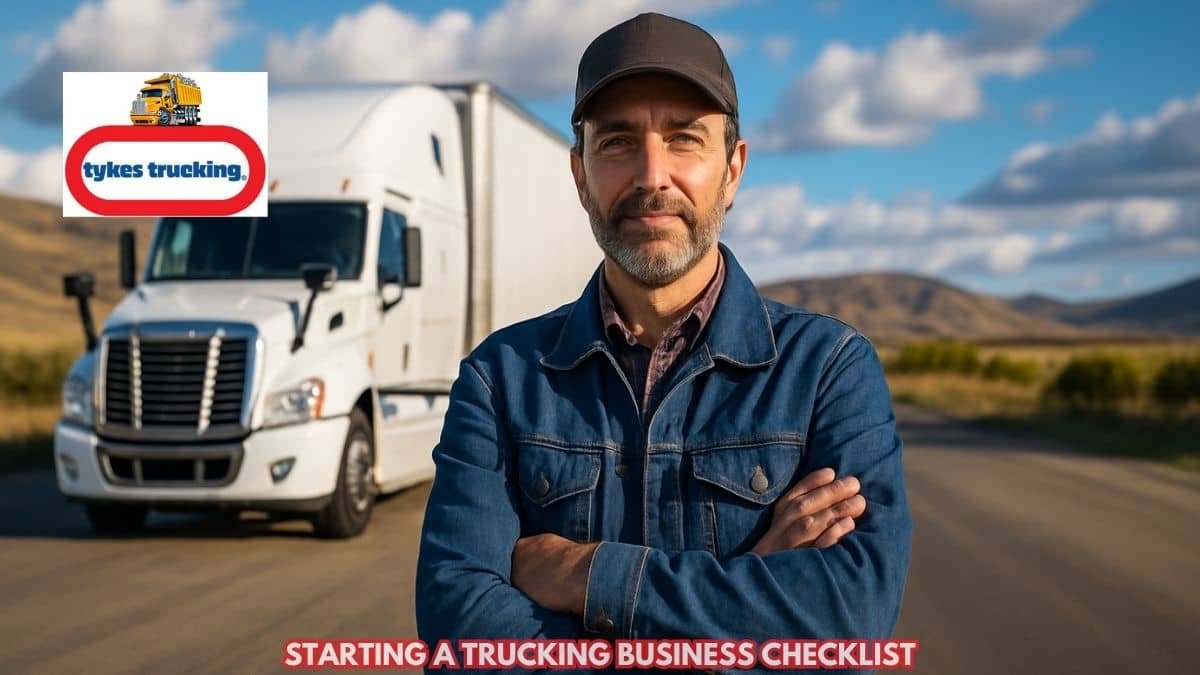Starting a trucking business requires careful planning because many legal, financial, and operational steps are involved.
Missing even one step can cause delays, extra costs, or compliance problems that may harm your business.
This starting a trucking business checklist provides a clear guide to help you prepare before beginning operations.
It covers important topics such as permits, insurance, financing, contracts, and managing your fleet.
By understanding each step, you can reduce risks and build a strong foundation for long-term success.
1. Creating a Detailed Business Plan
A detailed business plan is the foundation that guides every step when you start a trucking company.
It should describe your target market, including what types of cargo you plan to carry and which industries you want to serve.
The plan must also study competitors, comparing rates, service quality, and the size of other trucking companies in your area.
Clear financial projections are necessary and should show startup costs, expected fuel expenses, maintenance, driver salaries, and possible profit margins.
An effective plan also explains how you will manage daily operations, from scheduling deliveries to handling customer support, while setting goals for long-term growth.
If you plan to work as an owner-operator, your plan should outline how you will manage both driving and administrative duties without affecting service quality.
For those aiming to expand into a larger fleet, the plan should detail when to add trucks, how to train more drivers, and how to build partnerships with shippers and brokers.
Having this document not only helps you stay organized but also makes it easier to gain support from banks, investors, and potential business partners.
🚚 The Best Trucks for Hauling Horse Trailers: What to Look For
2. Choosing the Right Legal Structure and Registering Your Business
Selecting the right legal structure is important because it affects how you pay taxes, how much paperwork is required, and how your personal assets are protected.
The common options are sole proprietorships, partnerships, limited liability companies, and corporations, and each choice comes with its own advantages and responsibilities.
Once you decide on the best structure, you will need to register your business with the proper government offices to make it legally recognized.
As part of this step, you will also need to apply for an employer identification number, which works like a tax ID for your business.
This number is required when you file tax returns, open a business bank account, or hire employees.
In addition, you may need to register with both local and national agencies, depending on where you plan to operate.
Registration usually involves completing forms, paying fees, and keeping copies of your documents for future use.
Taking time to handle these requirements correctly helps you avoid penalties and gives your business a strong legal foundation.
🚚 Understanding the Mechanics of the Garbage Truck Hydraulic System: How It Works and Why It Matters
3. Securing the Necessary Licenses and Permits
The trucking industry in the Philippines has strict rules, and every operator must secure the proper licenses and permits before offering services.
A Professional Driver’s License from the Land Transportation Office is required for anyone who will operate a commercial truck.
If you plan to run trucks for hire, you will need to obtain a Certificate of Public Convenience from the Land Transportation Franchising and Regulatory Board.
Local permits are also necessary, such as a business permit and barangay clearance, which prove that your company is allowed to operate in your area.
For businesses carrying hazardous or special cargo, additional clearances may apply, and these should be requested before transporting goods.
To meet tax obligations, all trucking businesses must register with the Bureau of Internal Revenue for a Tax Identification Number, and in some cases, a process agent may be needed to help with documentation or representation in legal matters.
Completing these steps ensures your company is compliant and avoids delays or penalties once operations begin.
4. Understanding Insurance Requirements for Your Trucking Business
Insurance is a critical component of protecting your trucking business from potential risks.
At a minimum, you’ll need general liability insurance, which covers bodily injury and property damage, and cargo insurance, which protects the goods you transport.
Vehicle insurance is necessary to cover damages to your trucks in case of accidents.
Depending on the nature of your operations, you might also need specialized insurance, such as bobtail or non-trucking liability insurance.
It’s essential to work with an insurance provider experienced in the trucking industry to ensure you’re fully covered.
🚚 Understanding the Different Types of Dump Trucks and Their Uses

5. Contracting and Risk Transfer in Trucking
Clear contracts protect your business when moving cargo.
A written agreement should outline the scope of service, rates, and extra charges such as waiting time or additional stops.
Contracts must also state who is responsible if cargo is delayed, lost, or damaged.
Important details include liability limits, claims procedures, and how disputes will be resolved.
Keeping records like waybills, proof of delivery, and gate passes ensures you have the documents needed to support your rights.
🚚 How to Optimize Dump Truck Fuel Consumption Per Hour for Cost Savings
6. Exploring Financing Options for Your Trucking Startup
Starting a trucking business often requires significant upfront capital, making financing a crucial consideration.
Traditional bank loans are one option, but you may also explore Small Business Administration (SBA) loans, which offer favorable terms for small businesses.
Leasing trucks or equipment can reduce initial costs and free up cash flow for other expenses.
Some entrepreneurs turn to investors or crowdfunding to secure the necessary funds.
Whatever route you choose, it’s important to carefully review the terms to ensure they align with your long-term financial goals.
🚚 How to Choose the Right Dump Truck Hauling Services in the Philippines for Your Needs
7. Deciding Between Buying and Leasing Trucks
One of the most important choices when starting a trucking business is whether to buy or lease a truck.
Purchasing a truck gives you full ownership of the motor vehicle, which can increase long-term value but requires a large amount of money up front.
Leasing allows you to begin operations with lower startup costs, although lease contracts often include limits on mileage and usage.
When deciding, you should carefully compare the monthly payments, maintenance responsibilities, and how long you plan to use the vehicle.
For businesses that plan to move heavy loads, choosing a heavy highway vehicle may affect registration fees and taxes, which should also be part of your cost comparison.
Consider how ownership or leasing will influence your ability to expand your fleet in the future and manage your cash flow.
By weighing these details, you can choose the option that best supports your business goals while keeping expenses under control.
🚚 How to Choose the Best Dump Truck Design for Your Hauling Needs
8. Hiring and Training Qualified Drivers
Qualified drivers are the backbone of your trucking business, and hiring the right people is essential to your success.
Start by ensuring that all potential hires have the necessary commercial driver’s licenses (CDLs) and a clean driving record.
Beyond qualifications, look for drivers who demonstrate reliability, a strong work ethic, and a commitment to safety.
Once hired, provide comprehensive training that covers not only driving skills but also compliance with industry regulations and company policies.
Ongoing training is equally important to keep your drivers updated on the latest safety standards and best practices.
🚚 How to Choose the Best Trucking Services in Cainta for Your Needs
9. Implementing Effective Fleet Management Systems
Effective fleet management is key to running a smooth and efficient trucking business.
Implementing a robust system can help you track vehicle maintenance schedules, monitor fuel usage, and optimize routes.
These systems often include GPS tracking and telematics, which provide real-time data on your fleet’s performance.
By using this data, you can reduce operational costs, improve driver safety, and ensure timely deliveries.
Investing in a reliable fleet management system will not only streamline your operations but also enhance your overall profitability.
🚚 Can Truck Drivers Have Passengers?
10. Ensuring Compliance with Trucking Regulations
Compliance with trucking regulations is one of the most important responsibilities of any trucking business.
These rules cover many areas, such as driver working hours, motor vehicle inspections, and recordkeeping for safety and maintenance.
The Department of Transportation requires trucking companies to meet federal standards, which often means applying for the proper operating authority before they begin hauling freight.
To operate legally, every carrier must also obtain a DOT number, which serves as a unique identifier used to track safety performance and inspections.
Regular audits and self-checks are helpful to confirm that driver logs, inspection reports, and vehicle records are accurate and up to date.
Businesses that ignore these rules can face heavy fines, the loss of operating authority, or even a shutdown order.
A strong compliance system that tracks deadlines, renewals, and document submissions can reduce the risk of violations.
Following these regulations not only keeps your company legal but also builds trust with clients who depend on safe and reliable service.
🚚 Efficient Hauling with Professional Dump Trucks
11. Developing Marketing Strategies and Building Your Client Base
Building a strong client base is crucial for the growth of your trucking business, and effective marketing strategies are the key to attracting new customers.
Start by creating a professional website that highlights your services and showcases client testimonials.
Utilize social media platforms to engage with potential clients and share updates about your business.
Networking within industry circles, attending trade shows, and building relationships with freight brokers can also help expand your reach.
Consistently providing reliable service will lead to repeat business and positive word-of-mouth, helping you grow your client base over time.
🚚 Skilled Dump Truck Services for Marikina Area Projects
💡 Conclusion
With all the essential steps covered, your trucking business is ready to take off.
Following this comprehensive checklist ensures that you’ve addressed all critical aspects, from legal requirements to operational efficiency.
By preparing thoroughly, you reduce the risk of unexpected challenges and set a strong foundation for success.
As you embark on this journey, remember that ongoing learning and adaptation are key to thriving in the trucking industry.
Now, with everything in place, you’re ready to hit the road and drive your business towards success.
😉 Our Services
Tykes Trucking Services specializes in delivering high-quality aggregates and providing reliable hauling services.
Whether you need materials delivered or large items hauled, we ensure timely and efficient service.
Contact us at 09175435019, through our Facebook page, or via the contact form on our website.
We’re committed to meeting your needs with professionalism and care.
Choose Tykes Trucking Services for dependable and hassle-free deliveries.
❓ FAQs
1. How much money do I need to start a trucking business?
The cost depends on factors such as the number of trucks, the type of cargo, permits, and insurance.
In general, you will need funds for vehicle purchase or lease, fuel, driver wages, and compliance documents.
Many small operators start with one or two trucks and grow over time.
Having enough cash flow for at least three months of expenses is recommended.
2. What licenses are required to operate a trucking business in the Philippines?
You need a Professional Driver’s License from the LTO and a Certificate of Public Convenience (CPC) from the LTFRB if you operate as a truck-for-hire.
A business permit and barangay clearance from your local government are also required.
For tax purposes, you must register with the Bureau of Internal Revenue (BIR) and secure a Tax Identification Number (TIN).
Additional permits may be required if you transport hazardous or special goods.
3. Should I buy or lease trucks when starting?
Buying trucks gives you full ownership and may save money in the long term, but it requires a big upfront investment.
Leasing allows you to begin with lower costs and may include maintenance support, though it usually comes with mileage and usage limits.
The best choice depends on your budget, cash flow, and long-term business plans.
4. How do I find clients for my trucking business?
You can start by creating a professional website and joining online freight platforms.
Building relationships with freight brokers, attending trade shows, and networking with businesses that need trucking services also help.
Word of mouth from satisfied clients is powerful, so providing reliable and timely service is important for growth.
5. Why is insurance important for a trucking business?
Insurance protects you from unexpected costs that can result from accidents, damaged cargo, or property loss.
At a minimum, you need liability, cargo, and vehicle insurance.
Depending on your operations, you may also need specialized coverage such as bobtail or non-trucking liability insurance.
Having the right insurance helps keep your business financially secure and compliant with regulations.

